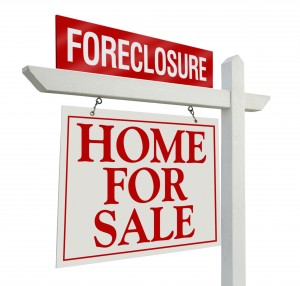 Guilt. Remorse. Sadness….and maybe elation if this payment doesn’t need to be made anymore. The realization that you will no longer be a homeowner has become very clear. As a homeowner, you may have decided that it is time for a dignified end to your role as a homeowner. For others, it is time to make a transition to housing that is a better fit in your life.
Guilt. Remorse. Sadness….and maybe elation if this payment doesn’t need to be made anymore. The realization that you will no longer be a homeowner has become very clear. As a homeowner, you may have decided that it is time for a dignified end to your role as a homeowner. For others, it is time to make a transition to housing that is a better fit in your life.
If you default or fail to make payments on your loan, the lender has a legal right to take possession of the property. This is the process called ‘foreclosure’. A foreclosure in your credit report is typically looked at by lenders as very negative. That is why you want to carefully consider alternatives to foreclosure.
Foreclosures create problems that will make it difficult for you to obtain credit or open another loan for a different home in the future.
Short Sale. The homeowner can try to negotiate a short sale. In a short sale, the property can be sold for an amount less than the amount necessary to pay off the mortgage, with an agreement from the lender that they are willing to take the ‘short’ amount as full payment of the loan. You must get agreement from your lender for this to happen as well as work with a realtor.
Some short sale agreements may include a ‘deficiency balance’. This is the amount of money that the property is ‘short’ and can be provided to the homeowner as an additional charge after the short sale is final. You don’t want to be surprised that after the sale of the home, you still have a bill to pay. Be certain you understand the agreements your lender asks you to sign.
Deed-in-Lieu. A deed-in-lieu of foreclosure presents the option of voluntarily relinquishing the property. This option needs to be agreed upon with the lender. This action will include some negotiation with the lender to determine if a transition or cash will be provided upon this relinquishment. A deed in lieu is still damaging to one’s credit though they may not be as severe or as long as a foreclosure.
Should you want to pursue any of these options, prepare yourself by meeting with a housing counselor. Your housing counselor will identify the needed paperwork to bring, including the loan number and your current financial spending plan. Offer specific information regarding your current financial situation, and help your housing counselor understand your goals.
Openly discuss what you would like to have happen and why with your counselor. Ask your counselor to work with your lender.
Stay in your home until the details have been worked out through your housing counselor with your lender. It may not feel like it, but work to keep yourself in the driver seat. Your credit and your future depend on it! Your housing counselor will provide you with details that are specific to you and your home.

